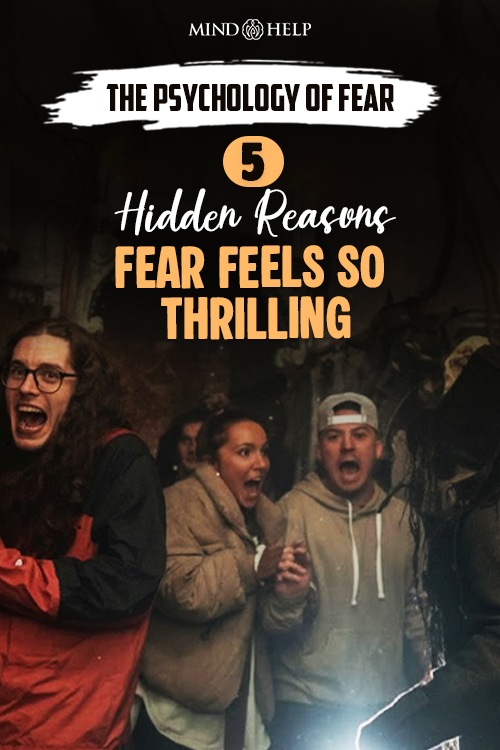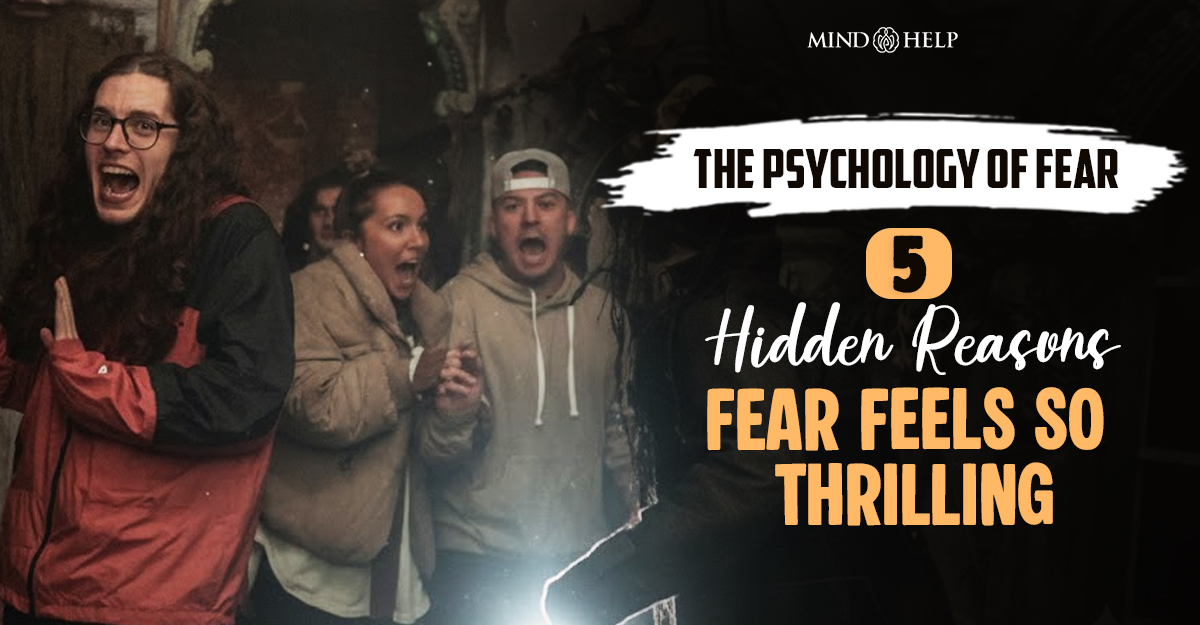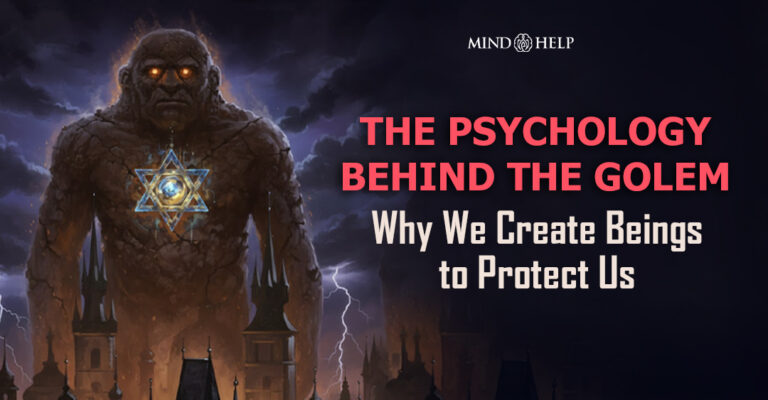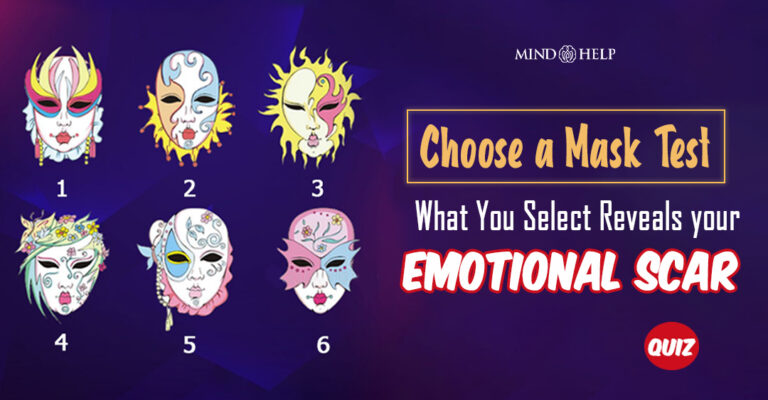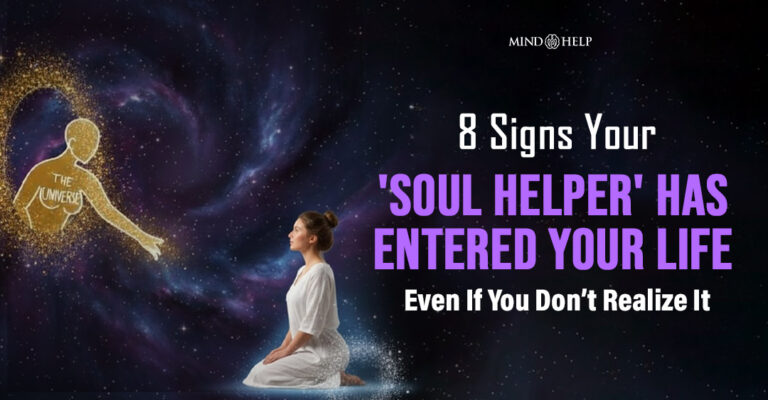The psychology of fear is a fascinating mix of instinct and exhilaration; a cocktail of adrenaline and fear that keeps us coming back for more. Think about why we enjoy horror movies, scream during jump scares, yet still hit “play” again.
So, why people like fear so much? The answer lies deep in fear response psychology – it’s not just about survival, it’s about stimulation.
When fear kicks in, our brains release a surge of adrenaline and dopamine, turning terror into thrill. That rush reminds us we’re alive, awake, and wired – proof that sometimes, fear isn’t something to avoid, but something we secretly crave.
Related: The Human Mind and How It Creates The Greatest Mental Horror Stories
Fear Is Just Excitement Wearing a Mask
Have you ever thought why we enjoy horror movies? When something scares you or startles you, be it a shadow, a sound, or a movie scene, your brain’s fear center, the amygdala, lights up like an alarm.
It then releases adrenaline, pumps energy through your veins, sharpens your senses, and sends your heart rate into overdrive. This reaction known as the fear response psychology is your survival system. However, that’s not even the fun part.
When your logical brain realizes that you are not actually in danger, the experience transforms from “terror” to “thrill”. Your system does not shut down instantly, instead, it gives you a chemical bonus – dopamine.
That’s right – your body rewards you for surviving fear, even if the threat was imaginary. You walk away with shaky hands, sweaty palms, and a wile, breathless laugh that says, “Oh my god, that was crazy. Let’s do it again.”
It’s the same reason we love roller coasters, bungee jumps, and haunted houses, all of them give us fear in doses our brains can handle. We crave the chaos but need the safety net.
Many experts who study the science of fear, call it “controlled danger.” It’s your brain rehearsing survival, but it has fun doing it.
The Psychology of Fear: 5 Ways Fear Triggers Pleasure in Your Brain
So, why do we keep chasing fear like it’s a thrill ride? Why do we want to be scared when every instinct says otherwise?
Science (and a little soul searching) gives us the real answers.
1. It feels damn good (thanks, adrenaline).
When fear hits you but doesn’t harm you, it feels amazing, doesn’t it? You can feel your body flooding with endorphins, dopamine, and adrenaline – a chemical cocktail of euphoria and energy. It’s like your brain is getting high on survival.
Some studies show that people who experience controlled fear (like horror movie fans or adventure junkies) get the same brain activity as someone on an emotional high. So yeah, fear is basically free dopamine, also known as the body’s built-in thrill drug.
2. It’s the safest way to dance with danger.
Human beings are programmed to test limits. Why people like fear often boils down to curiosity; we want to peek over the edge without falling headfirst into the abyss.
That’s why horror movies are irresistible. You can scream, cover your eyes, and still feel totally safe. Your amygdala is losing its mind, but your rational brain’s like, “Relax, it’s just Netflix.”
This paradox, danger without risk, gives us what scientists call benign masochism: finding pleasure in things that scare, challenge, or even disgust us, as long as we know we’re safe.
In other words: fear gives us drama, but without the trauma.
3. Fear bonds us like nothing else.
When feel scared together, something weirdly beautiful happens. Our heartbeats sync, our brains mirror each other’s signals, and we instinctively huddle closer. It’s primal.
Shared fear releases oxytocin, the bonding hormone. That’s why friends laugh after screaming through a horror movie, or why horror movie dates work so well.
Nothing builds intimacy faster than surviving something “terrifying” together (even if it’s just a possessed doll). So, the next time you hold someone’s hand during a jump scare, blame the hormones, because fear literally makes you feel closer.
4. It helps us feel in control of chaos.
As we all know, life is very unpredictable. So, fear, when we choose it, gives us back a sense of control. When we watch a scary movie, or ride a roller coaster, or explore a haunted house, we face our anxiety on our own terms.
We can pause, quit, or walk away. And that sense of control transforms fear from panic into empowerment.
Studies show that horror fans handled pandemic stress better than others. Why? Their brains were already trained to manage simulated fear. Turns out, why we enjoy horror movies might be more than entertainment; it’s emotional resilience in disguise.
5. It makes us feel alive.
When it comes to the psychology of fear, always remember that it has the power to snap us out of autopilot. It forces us to be in the present moment – every breath counted, and every nerve buzzing.
When there’s adrenaline and fear running through your veins, there’s no overthinking, no multitasking – just pure, electric existence. Contrary to popular belief, fear does not numb you, it wakes you up.
That’s the real heart of the fear response psychology: it’s not about suffering, it’s about feeling. We don’t love fear because it’s dark, we love it because it reminds us we are alive.
Related: Zodiac Signs as Horror Movie Characters: Which Iconic Villain Are You This Halloween?
Fear Is the Most Human Emotion
Fear gets a bad rap, but maybe it’s one of our most beautiful emotions. It’s ancient, honest, and raw. It strips away ego and leaves us face-to-face with our own vulnerability.
When we explore it safely, fear becomes a mirror; if we allow it, it shows us what matters, what excites us, and what makes us feel real. Whether it’s adrenaline and fear from a jump scare, or the quiet thrill of walking through the dark, fear is proof of life.
So the next time your pulse spikes during a horror flick, don’t hide behind the pillow, enjoy it. Your brain’s not broken. It’s just doing what it’s always done: turning danger into dopamine, and terror into a reminder that you are alive.
